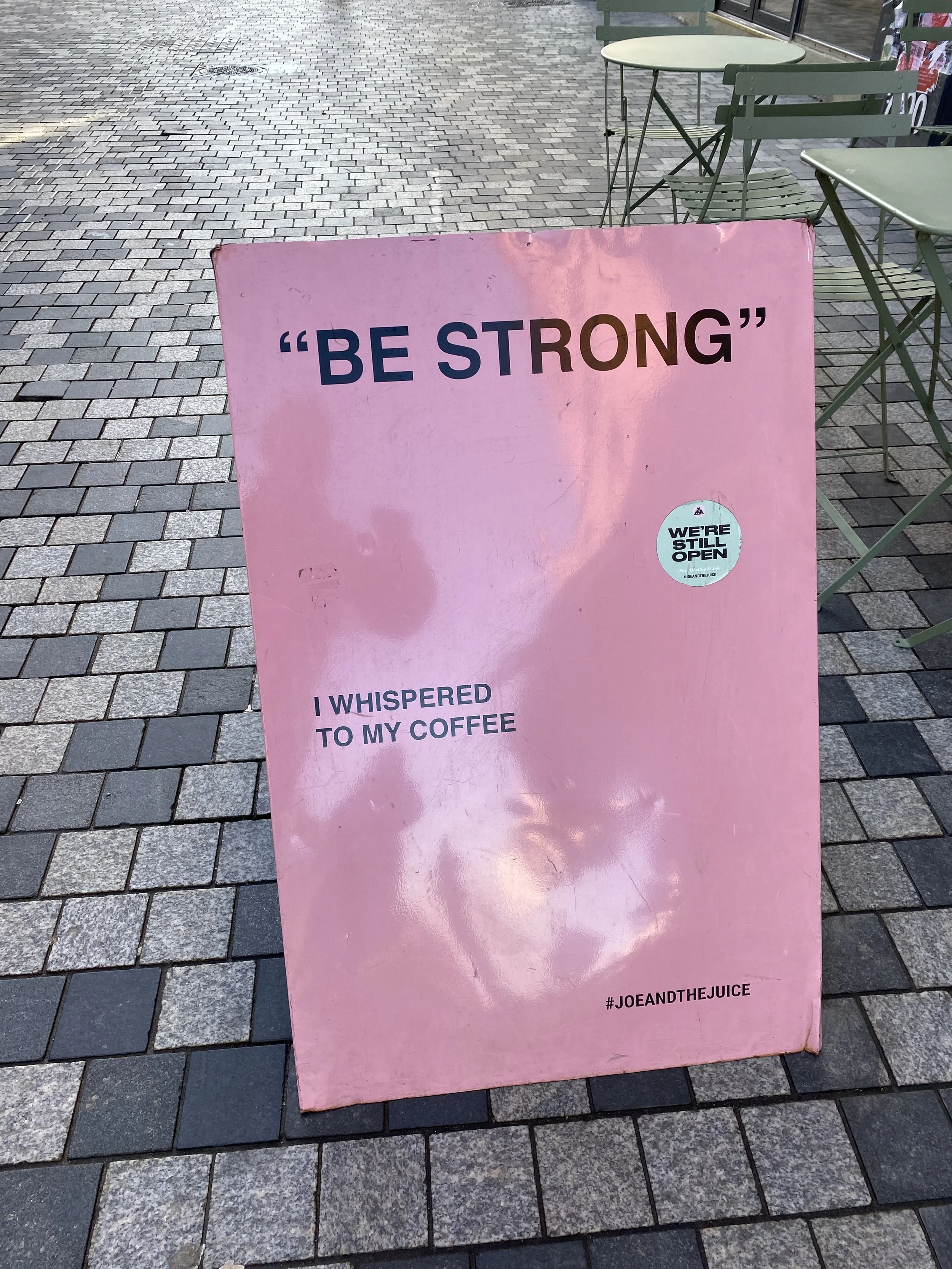Writers, how do you like your coffee?
How paradox is the key to defining theme.
When starting a session on a new project, first step is to understand the theme, what some call the central question or the project’s essence. It’s an important first step before evaluating how the writer intends to tell their story, the framework that weaves together character, conflict and world. Good themes can contain paradoxes, statements that are seemingly contradictory or opposed to common sense and yet perhaps true. The better it gets the harder it gets. I throw the word paradox around way too easily as if grabbing some kind of duality, the two seemingly irreconcilable aspects of a story is easy. It’s not.
I was working in Malmö recently and as I headed out from Copenhagen’s Nørreport station I passed one of those irritating coffee signs that luckily are quite rare here in Denmark (way too common in my native UK). This one intrigued me. “Be Strong, I whispered to my coffee” vibrated. There was a dissonance, something didn’t match up. I was presented with a duality, a paradox. Had it said “Be Strong, I shouted to my coffee” I would have walked on with nothing more than information, nothing to figure out, nothing to question, no call to dig deeper. But written as it was, there was an imbalance. Why should the coffee be strong when I was clearly weak? What did I ask of the coffee that I couldn’t ask of myself? I could go on. And that’s my point. From this feeling of disharmony, by these two opposites, a paradox was emerging. A theme attempts to capture a paradox.
Once a writer has grabbed their theme, they have the most powerful tool that will help when answering the questions that shape their story.
Find out how I can help you develop your script and get your project closer to financing and production. Get in touch.
www.handlingstory.com #handlingstory #theme #story #film #tvseries
